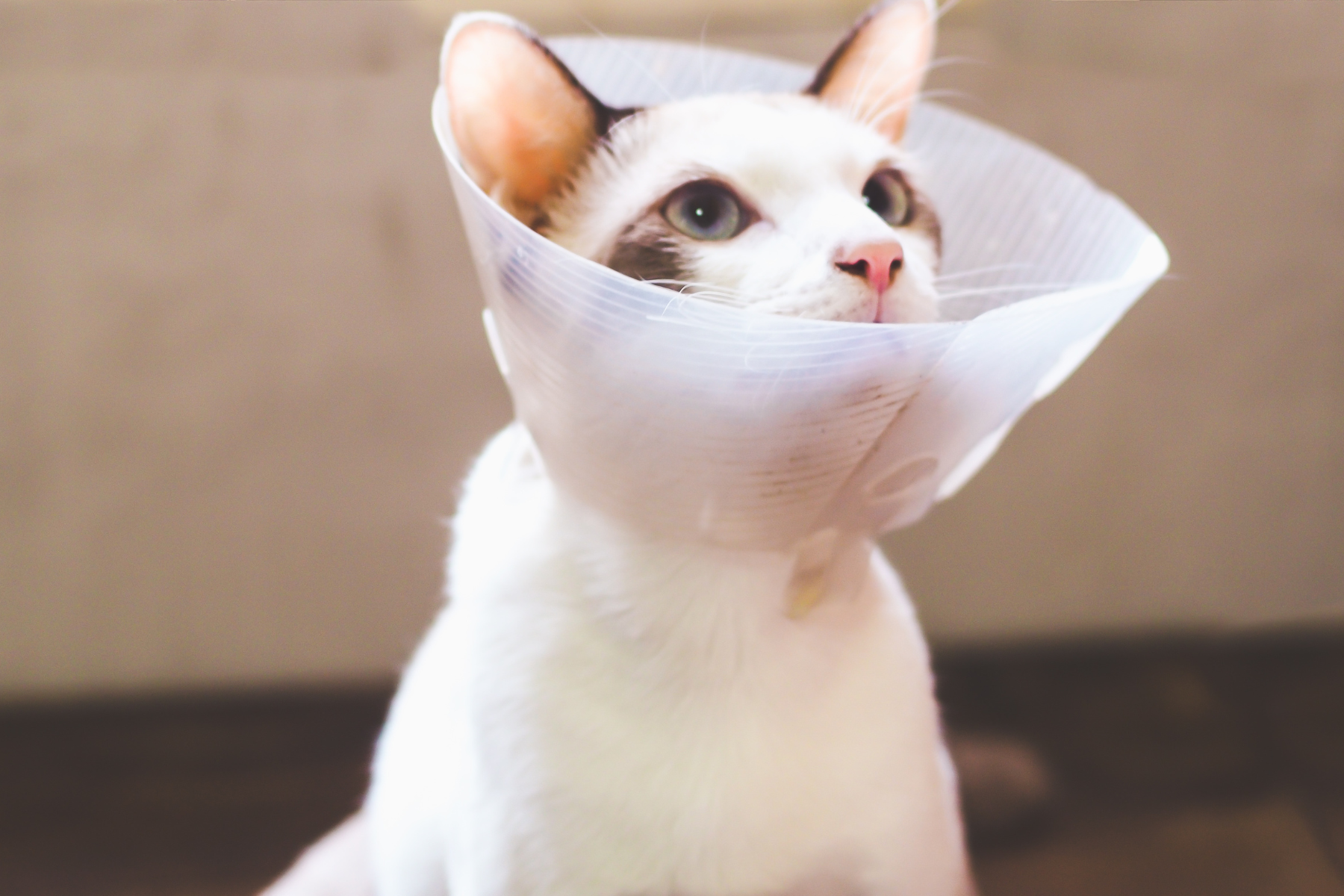How Should I Care for My Cat Before and After a Spay or Neuter Surgery? Our Rio Rancho Clinic Offers the Best in Cat Care
At Coronado Pet Hospital, we understand how stressful spaying or neutering your cat can be. For most, this will be our fur baby’s first surgery. As new pet parents, we may not know what to expect and how to take the best care of our pets before and after the procedure. Our experienced staff can equip you with the knowledge and confidence needed to ensure a smooth and comfortable experience for your beloved family member.
This minor operation has significant health benefits, including a reduced risk of certain types of cancers and infections, thus ensuring your cat leads a happy, healthier life.
In this blog post, we’ll offer expert guidance on preparing for cat neutering and spaying in Rio Rancho and Bernalillo, as well as the best practices for aftercare.
Pre-Surgical Care
Here are key guidelines to follow before the surgery.
Fasting Before Surgery
First, your friendly veterinarian will advise a fasting period, usually overnight, to prevent nausea and dangerous aspiration during anesthesia.
Comfort With the Crate
Work with your cat well before surgery day to ensure they have a relaxed, stress-free association with their crate. Leave the crate open in well-traveled parts of your home. Fill it with comfy bedding, play treat-finding games in the crate, or toss in a favorite toy.
Spray it with a feline pheromone product like Feliway. The more comfortable your cat is with the crate, the easier the surgery day will be.
Anticipate Some Resistance
Despite your best efforts to get your cat to love their crate, if your shy cat still tends to hide when they know something’s up, leave plenty of time in the morning to minimize the last-minute stress of chasing your feline friend or digging under a couch or bed.
If your cat is an outdoor pet, keep them inside the night before to avoid any unexpected delays or complications.
Preparing a Recovery Area
Lastly, prepare a cozy, quiet space for their post-surgery recovery, at least for the first day or two. This area should be apart from other pets and out of the way of family chaos. Provide easy access to food, water, and a litter box to aid in a stress-free recovery.
Monitoring Your Cat’s Recovery
After your cat’s spay or neuter procedure, it’s important to closely monitor their recovery to ensure a smooth and healthy healing process.
Tiredness
Most spayed or neutered cats will sleep more than usual after you take them home. This is quite normal. Some anesthetic drugs can have a 12-24 hour effect. Plus, a cat used to sleeping a lot during the day may not get their normal amount of rest in a busy hospital setting.
If you can’t wake your cat easily with gentle petting, or they continue to be very sleepy after 24 hours, contact your vet or the nearest pet emergency hospital.
Defecation
Many fixed cats won’t defecate for 24-48 hours after surgery. The GI tract slows during anesthesia and may take some time to return to normal. Plus, your pet will probably not have eaten since the day before surgery, so their stomach may be empty.
Contact our skilled veterinarians if your cat has not defecated in more than 48 hours post-surgery.
Eating and Drinking
Your veterinarian will usually have you limit the amount of food and water given to your cat for the first 12-24 hours after they are home. Due to the use of anesthesia during surgery, your vet wants to ensure they can digest the food and water without vomiting or having other digestive issues.
Usually, if your cat doesn’t have issues processing the smaller amounts of food and water the night after surgery, they can return to eating and drinking average amounts the next day.
If your spayed female cat or neutered male cat vomits, has other digestive issues, or does not want to eat or drink at all by the following morning, contact your veterinarian.
Medications
After these common surgeries, your veterinarian may prescribe your cat medications. These help manage your pet’s post-operative pain and infection.
There are long-acting antibiotics and pain medications that can be given in hospital, so you don’t have to struggle to medicate your cat at home. Ask if these are appropriate for your cat’s age and general health.
Do not give your pet human medications or medications not prescribed for this procedure. Using medications not recommended by your veterinarian can cause severe reactions or possible organ damage.
If you’re unfamiliar with giving your cat oral medications, ask your vet or our spay and neuter clinic in Rio Rancho for safe and low-stress ways to administer medications to your pet.
Aftercare Recommendations
Here are some essential aftercare recommendations to help your cat heal effectively from a feline spay or male cat neuter.
Restricting Exercise
Running, jumping, and playing can cause stitches to rip and surgical sites to open. Your vet may recommend limiting your cat’s exercise for at least 10-14 days.
Preventing Licking or Scratching
Infections and other issues can occur if a cat scratches or licks the incision site. This is why your cat is usually sent home with an Elizabethan collar (E-collar). Depending on the healing process, your cat may be required to wear this E-collar for 10-14 days or longer.
It’s best to keep the E-collar on them at all times. This ensures your pet doesn’t get the opportunity to scratch or lick their incision.
Sometimes, pets don’t like to eat or drink while wearing the cone. You may remove it for short periods to allow your pet to eat or drink but must replace it immediately afterward. Essentially, if you’re not actively watching them, the cone must be on. This includes overnight hours.
Examining the Surgical Area
Monitoring the surgery site to ensure it’s properly healing is crucial. Watch for signs that indicate an infection or other health issues:
- Swelling
- Discharge
- Redness
- Bleeding
Contact your veterinarian immediately if these symptoms appear or if you’re concerned about any post-surgery conditions.
Avoiding Baths and Swimming
It’s important to keep the surgical site dry. Don’t bathe or allow your cat to enter any water until the site has healed. This usually takes 10-14 days.
Discover Why Our Veterinary Clinic is the Trusted Choice for Rio Rancho Pet Owners
At Coronado Pet Hospital, our caring and knowledgeable veterinary team takes every precaution necessary to ensure your cat heals properly and quickly. As an AAHA-accredited facility, we adhere to the highest standards of veterinary care, utilizing the latest technologies and techniques in every procedure.
We offer more than the average neuter and spay clinic. Our services encompass general internal medical care, dentistry, pain control, and more, all tailored to meet each pet’s unique needs.
Our courteous staff is always here to answer any questions or concerns about these essential procedures. Contact us today to schedule your pet’s surgery and experience the many benefits of spaying and neutering your cat!
 Download Our App
Download Our App
